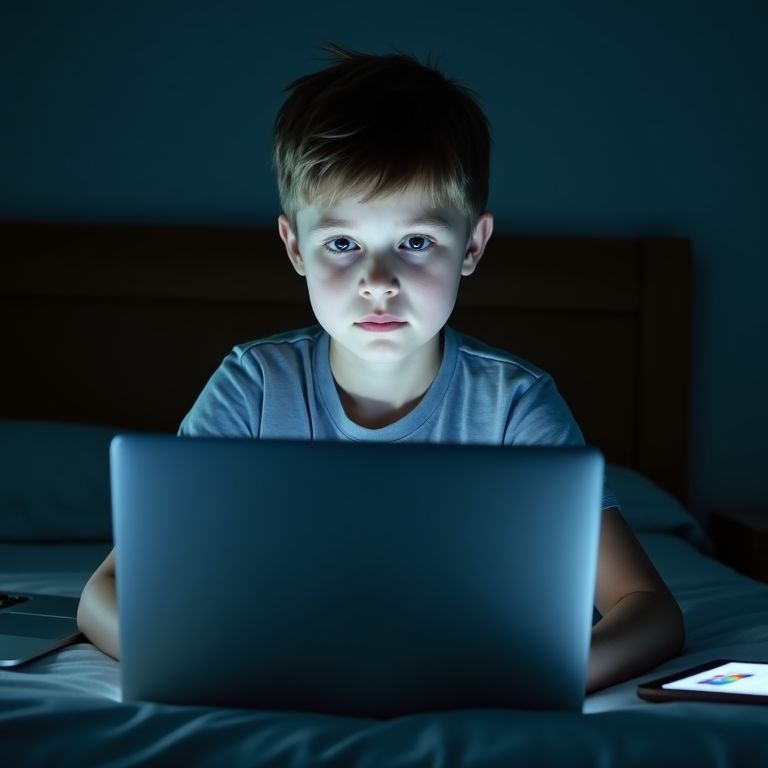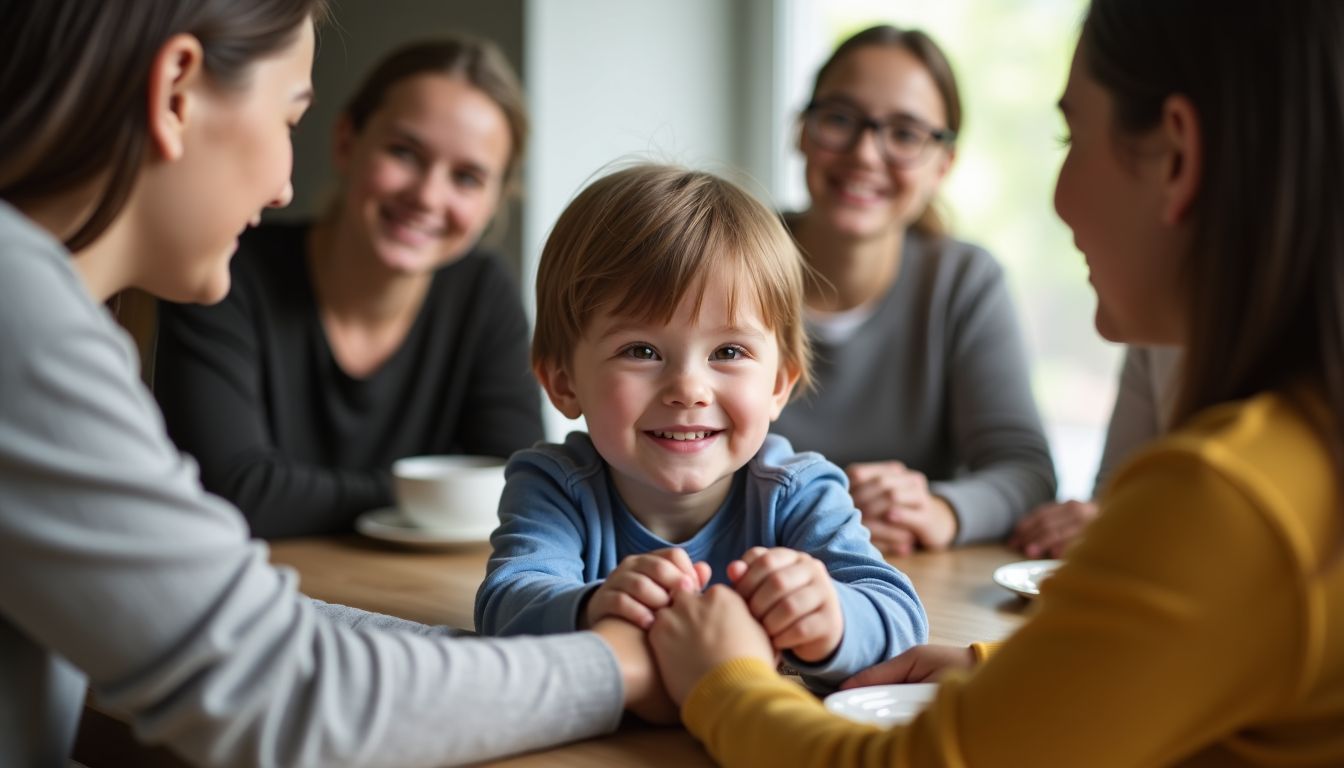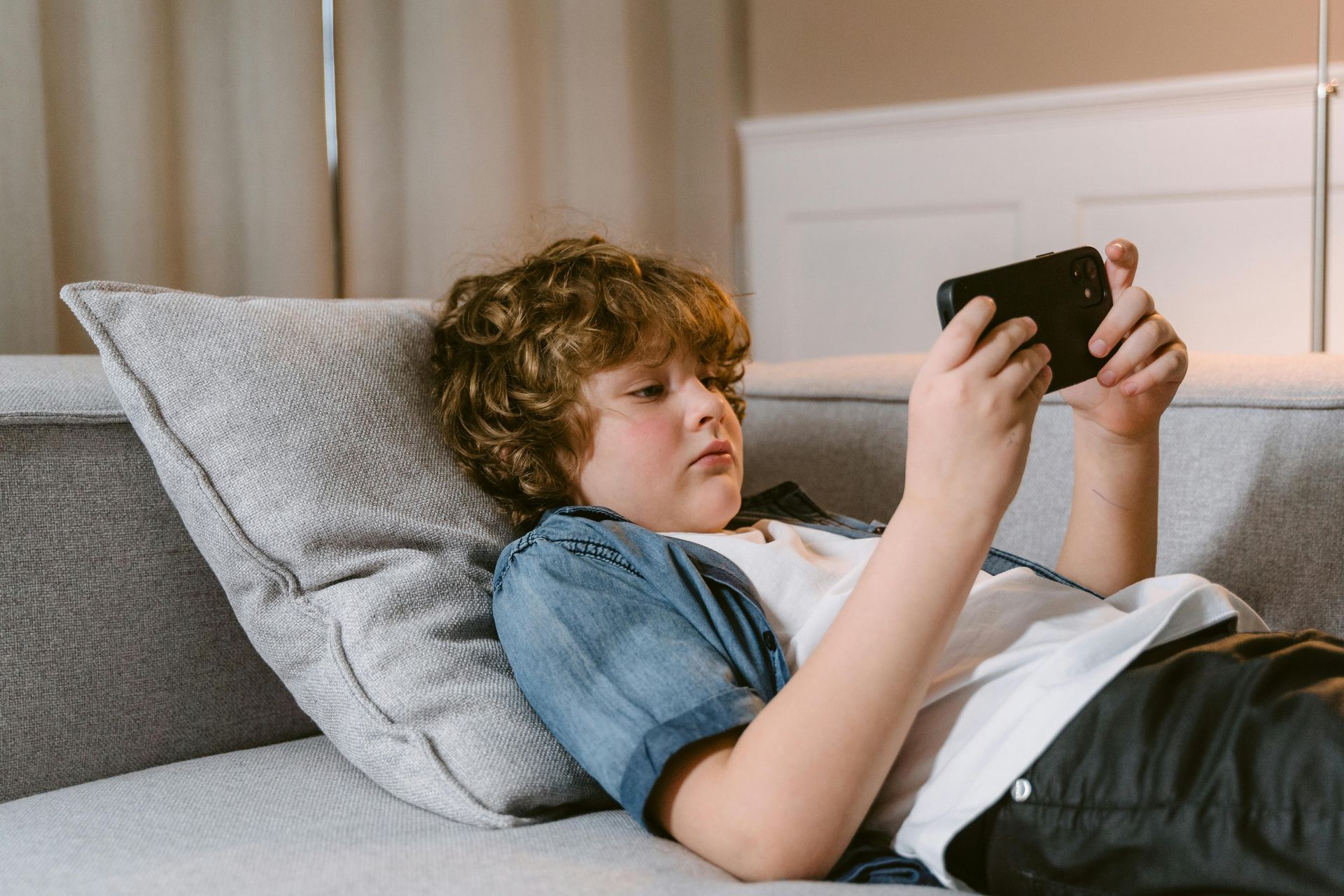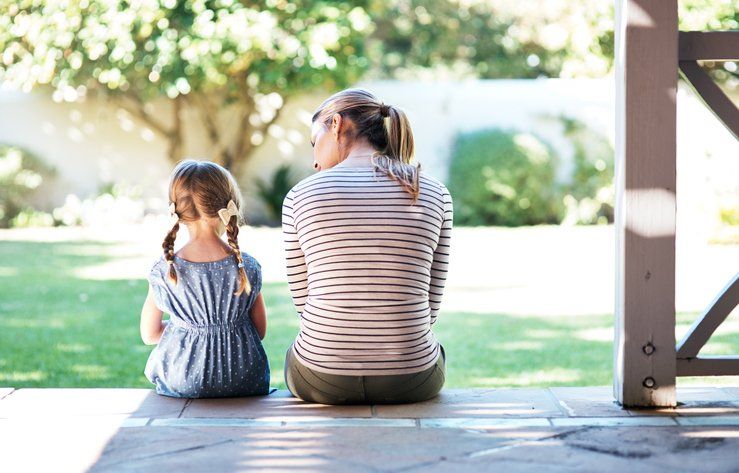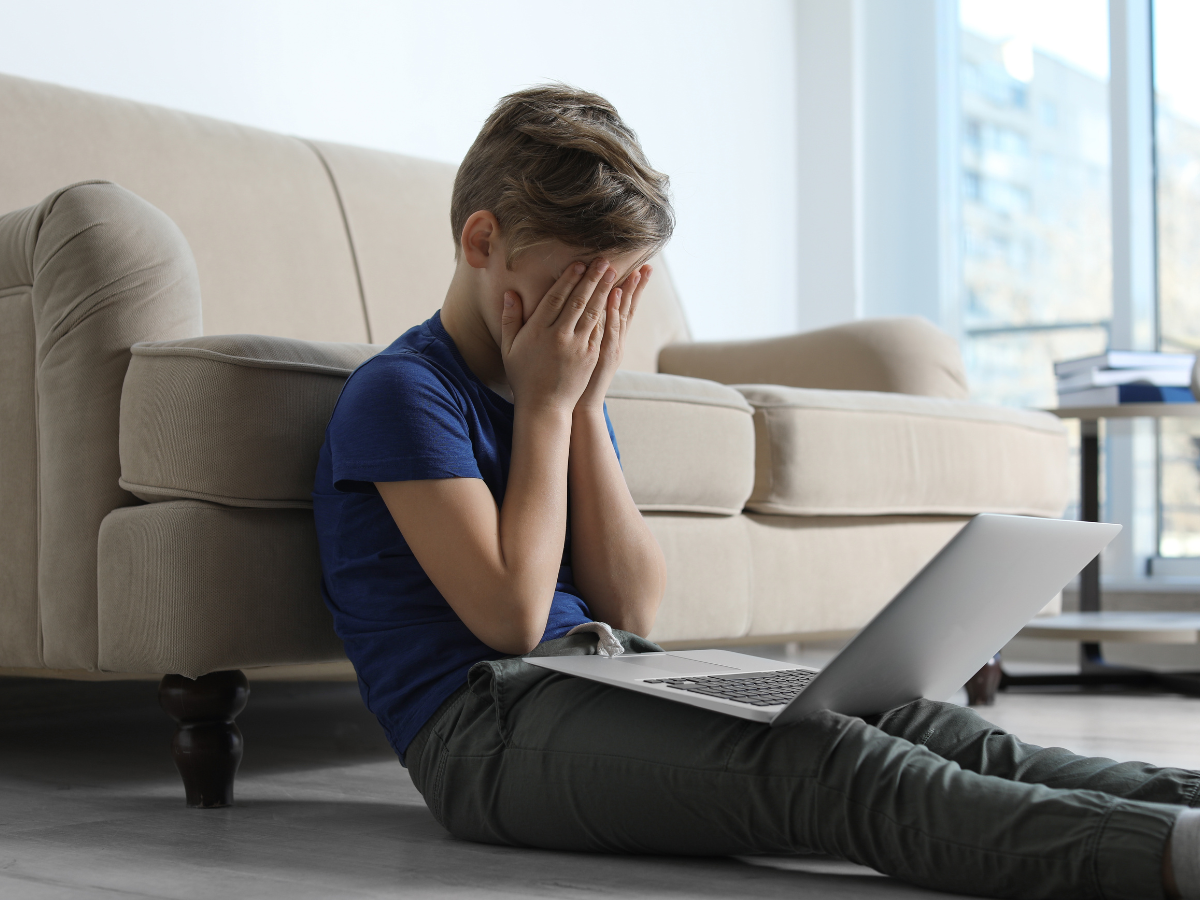Unveiling The Social Media Dangers For Children: A Parent's Guide
Keep reading for practical tips every parent needs.
Key Takeaways
- Over 50% of teens feel stuck by FOMO, causing excessive screen time. Experts recommend limiting it to two hours daily to reduce risks like anxiety and depression.
- 64% of teens report exposure to hate-based content online. Parents can use privacy settings and parental control apps to protect kids from harmful material.
- Social media harms mental health, doubling risks for anxiety and depression in teens using it over three hours a day. It also impacts sleep and focus negatively.
- Cyberbullying affects 64% of teens, often leading to low self-esteem or worse outcomes like suicide in severe cases. Open family talks help address this issue early.
- Parents should teach critical thinking skills, monitor profiles, set limits, and promote offline interactions to guide children safely through social media challenges.
Understanding Social Media Dangers for Children
Social media can impact children in ways parents may not expect. It’s crucial to recognize these risks early to protect their well-being.
Excessive Screen Time
Children often spend too much time on social media platforms. Over 50% of teens feel trapped by Fear of Missing Out (FOMO), making it hard to log off. Experts, like the American Academy of Pediatrics , suggest limiting recreational screen time to two hours a day.
Excessive use can harm youth mental health. Teens spending over three hours daily on social media apps risk doubling their chances of anxiety and depression. Sleep disturbances, irritability, and reduced focus are also common side effects.
Parents should set clear screen time limits to protect children’s well-being.
Exposure to Inappropriate Content
Access to harmful content on social media sites poses serious risks for young people. Nearly 64% of teens report regular exposure to hate-based content. Violence, misinformation, and harmful videos often appear without warnings.
Kids under 13 are especially vulnerable due to their limited critical thinking skills. Strangers can contact them through direct messages or comments, increasing the chance of uncomfortable situations.
Many platforms lack strong controls to block such interactions completely.
Parents should take firm action to protect children online. Tools like parental control apps and built-in safety features on cell phones help limit risks of exposure. Adjust privacy settings on social media accounts so only trusted individuals can interact with your child’s profile.
Teach kids not to share addresses, phone numbers, or other personal information that predators might exploit. Awareness is key before addressing cyberbullying and online harassment in the next section.
“Social media access for young people creates challenges parents must actively address.”
The Negative Effects of Social Media
Social media can harm a child’s emotional health and daily life. It may lead to feelings of loneliness, stress, or fear.
Cyberbullying and Online Harassment
Cyberbullying affects 64% of teens who see hate-based posts often. It can cause low self-esteem, anxiety, and even lead to suicide in some cases. Many young girls face online harassment that impacts their mental health and daily life deeply.
Changes like irritability, sleeping issues, or frustration when asked to stop using social networks for chores can signal problems.
Parents should report harmful content immediately to social media companies or authorities. Teach kids about respect before they post anything online. Set ground rules for digital media use at home.
Encouraging open talks with family members helps children feel supported if they experience cyberbullying's negative effects firsthand.
Body Image Concerns and Social Comparison
Social media often distorts reality, causing kids to compare themselves unfairly. High-resolution images and edited posts create impossible beauty standards. About 46% of teens aged 13–17 report that social networking sites worsen their body image.
Adolescent girls may feel pressured to meet unrealistic expectations seen online. This can lower self-esteem, spark anxiety, and increase feelings of inadequacy.
Teenage boys face similar struggles but talk about it less openly. Constant exposure to “perfect” bodies or lifestyles affects mental health and behavior. Excessive media usage leads to irritability, depression, and even sleep problems in many young people today.
Parents should teach critical thinking skills early on to help children spot fake content online while promoting face-to-face interactions over hours spent scrolling feeds.
Mental Health Impacts, Including Anxiety and Depression
Teens who spend over three hours a day on social media are twice as likely to face anxiety and depression . The U.S. Surgeon General warns that excessive use can harm mental health.
Many children compare themselves to others online, which lowers self-esteem and increases feelings of inadequacy. Girls aged 11–15 often feel the pressure acutely, with 33% admitting they feel addicted to these platforms.
Excessive screen time also disturbs sleep patterns, leading to irritability and poor focus. Kids may struggle with concentration or experience heightened stress from constant notifications or negative interactions like cyberbullying.
Limiting recreational screen time to two hours per day can reduce these risks significantly while supporting better emotional well-being.
How Parents Can Protect Their Children
Parents play a key role in keeping their children safe online. Simple actions and open conversations can greatly reduce online dangers.
Set Clear Boundaries and Screen Time Limits
Limit recreational screen time to two hours daily. Stop device use at least one hour before bedtime for better sleep. Keep bedrooms screen-free zones to create healthier routines. These steps can reduce risks like irritability, anxiety, and poor sleep.
Use tools like the American Academy of Pediatrics family media plan. Screen time management apps can set automatic limits, helping families stick to schedules. Adjust boundaries based on a child’s age and mental health needs for personalized care.
Monitor Social Media Usage and Privacy Settings
Parents should review their child’s profiles and friend lists regularly. Discuss who they interact with, avoiding befriending strangers as a good idea. Use tools like parental control apps or built-in smartphone safety features to track activity.
Gain access to accounts by documenting usernames and passwords for easy monitoring.
Set privacy settings on all platforms to protect against online predators or identity theft. Encourage children not to share personal information such as credit card details or private health information.
Watch for behavioral changes, including frustration when asked to reduce social media usage. Early action can prevent potential harms linked to excessive screen time and media exposure in young adults.
Encourage Open Communication
Talk openly with your children about the risks of social media. Discuss internet safety, online interactions, and consequences before they face issues like cyberbullying or dangerous content.
Use real-life examples to make these risks relatable for them. Encourage your child to speak up if something online feels wrong or upsetting.
Create a space where your child feels safe sharing their experiences without fear of judgment or punishment. Teach critical thinking skills so they can evaluate what they see online.
Guide them on respecting others and posting responsibly on platforms like video games chatrooms or text messages apps. Model good behavior by reflecting on how you use technology in front of them daily.
The Role of Education and Awareness
Teaching kids about online safety builds their confidence and helps them make smart choices; read ahead to learn how you can guide them.
Teaching Critical Thinking Skills
Kids need to think before they post. Teach them the "WWGS?" rule—What Would Grandma Say? This simple habit helps avoid sharing inappropriate content. Show them how posts and comments can stay online forever, even with privacy settings.
Explain how to spot fake news or scams on social media. Encourage asking questions, like who shared it or why it was posted. Guide them in understanding risks, such as befriending strangers online.
Skills like these protect young people from bad news and harmful interactions while improving their judgment skills over time.
Promoting Digital Literacy
Teach children to think critically about technology use. Help them question information online and recognize potential risks. Discuss how social interactions on the internet differ from face-to-face connections.
This builds awareness of both the benefits of social media and its negative impacts.
Encourage kids to spot harmful content, like cyberbullying or scams, through fun family discussions. Use tools such as the American Academy of Pediatrics family media plan to guide these talks.
A Courageous Voice provides resources in Detroit and Bloomfield Hills, Michigan, for creating safe digital spaces for young people.
Conclusion
Protecting children online takes effort, but it’s worth it. Social media can help kids learn and connect, but dangers exist. Parents must stay involved, set limits, and talk openly with their kids about safety.
Small steps today can prevent big problems tomorrow. Let’s create a safer digital world for our children in Detroit and Bloomfield Hills!
Keeping Kids Safe Off and Online
FAQs
1. What is the impact of social media on children's health?
Excessive use of social media can harm children's mental and physical health. It reduces physical activity, increases risks for mental health issues, and contributes to a growing mental health crisis among young people.
2. How much time should children spend on social media daily?
The U.S. Surgeon General’s Advisory suggests limiting the amount of time kids spend online. Spending too much time scrolling can lead to harmful effects on their behavioral and emotional well-being.
3. Why are teenage girls more affected by social media dangers?
Teenage girls face higher risks due to increased exposure to unrealistic standards and cyberbullying, which can worsen self-esteem and trigger mental health challenges like anxiety or depression.
4. What role do tech companies play in addressing these dangers?
Tech companies must create safer platforms for kids by enforcing minimum age limits, improving content moderation, and supporting policies like the Kids Online Safety Act to protect children online.
5. How can parents set a good example when it comes to internet use?
Parents should model healthy habits by limiting their own screen time, spending quality family life offline, and encouraging activities that promote real-world connections.
6. What steps can families take to reduce the harms of social media?
Families should monitor internet access closely, talk about the risks openly with children, encourage outdoor activities for better balance, foster strong social support systems at home, and advocate for policy changes that prioritize public health over profit motives from tech platforms.
Mailing Address
2510 Telegraph Road
STE L267
Bloomfield Twp., MI 48302
A Courageous Voice is a 501(c)3,
nonprofit organization
serving Wayne and Oakland Counties.
2025 A Courageous Voice All rights reserved.
Website Powered By: Ever Studios, LLC



